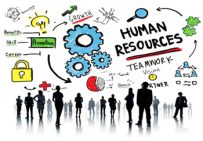EDUCATIONAL PROGRAM 051 ECONOMICS
Educational and professional program
“ECONOMICS AND BUSINESS ORGANIZATION”
Training specialists who are able to make sound business decisions and solve economic problems in business process management Graduates will receive theoretical knowledge and practical skills for
managing business processes, conducting commercial activities, justifying and making economic decisions, as well as for creating and developing their own business in various areas of the economy.
Components of the educational and professional program:
☑ Economics, organization and management of business processes
☑ Economics and marketing of intellectual business
A business process is a set of interrelated actions and functions that are necessary to obtain a certain result.
Business process modeling is a guide to the result with the optimal way to achieve it.
Scope of application of the acquired knowledge:
✔ creating your own business
✔ business planning
✔ commercial activity
✔ ensuring economic security of business
Intellectual property (IP) in modern conditions of innovative development of the economy is becoming the main resource that can ensure competitiveness and economic security of business.
Scope of application of acquired knowledge:
✔ organization of patent and licensing activities
✔ registration of rights to IP objects
✔ commercialization of IP objects
✔ management of IP objects in business
The main disciplines of professional training of the OPP “Economics and Business Organization”:
✔ fundamentals of entrepreneurship
✔ creating your own business
✔ e-commerce
✔ economics and organization of innovative activity
✔ business planning
✔ business potential and development
✔ business competitiveness
✔ information technologies in the economy
✔ system of international economic relations
✔ justification of economic decisions and risk assessment
Educational and professional program
“BUSINESS ECONOMICS AND PERSONNEL MANAGEMENT”
Training of specialists capable of solving economic problems and effectively implementing personnel management functions.
Graduates will receive theoretical knowledge and practical skills for professional activity in the fields of economics, business analytics and personnel management.
Today, these are universal specialists who combine a deep understanding of economic processes and leadership qualities, the ability to work with people and form an effective personnel development strategy.
Components of the educational and professional program:
☑ Business Economics
☑ Personnel Management
Business Economics is a professional activity of specialists of a wide profile, which is associated with economic analysis and making optimal decisions in various areas of economic and managerial activity.
Scope of application of the acquired knowledge:
 ✔enterprise economics
✔enterprise economics
✔business decision-making
✔business analytics
✔business communications
Personnel management is the activity of managers and specialists of an organization (enterprise, institution), which is aimed at the effective use of people (staff) to achieve goals, both organizational
and individual (personal).
Scope of application of the acquired knowledge:
✔personnel planning
✔employee development
✔motivation
✔team management
✔personnel marketing
 The main disciplines of professional training of the OPP “Business Economics and Personnel Management”:
The main disciplines of professional training of the OPP “Business Economics and Personnel Management”:
✔enterprise economics
✔economic analysis
✔economic informatics
✔economic statistics
✔methods of making managerial decisions
✔investment activities of the enterprise
✔enterprise strategy
✔fundamentals of management
✔personnel management
✔labor economics and social and labor relations
EDUCATIONAL PROGRAM 292 INTERNATIONAL ECONOMIC RELATIONS
Training in the educational and professional program “International Economic Relations” is carried out at two educational levels: the first (bachelor’s) and the second (master’s). This allows students to obtain basic knowledge and competencies at the bachelor’s level, as well as to deepen specialized skills for effective activity in the field of international economic relations at the master’s level.
The objects and areas of professional activity of graduates of specialty 292 “International Economic Relations” will be:
➤International economic relations, diplomacy and international politics, history, culture, religions, population, languages of individual countries;
➤Foreign policy of Ukraine and other countries.
➤Integration processes within international organizations.
➤International trade and investments.
➤International financial activities and risk management
➤International economic organizations and consortia
➤Regional and global markets
➤International economic relations in the field of culture, science and education
The first (bachelor’s) level of higher education.
Bachelor’s level studies in the specialty 292 “International Economic Relations” involve a combination of in-depth economic training with the study of foreign languages. Applicants must study English, and can also choose an additional foreign language. This allows graduates to work effectively in international teams and carry out foreign economic activities. Special attention is paid to the study of international economic processes, models of economic development of different countries, the features of international trade, as well as the basics of diplomatic and economic negotiations.
The program is focused on the development of analytical skills, critical thinking and the ability to apply theoretical knowledge in practical international contexts. Graduates receive comprehensive training for work in the international economic environment, including knowledge of global markets, trade agreements and international organizations.
Professional activities for which graduates of the specialty 292 “International Economic Relations” with the qualification “Bachelor” will be prepared:
➤Expert and analytical activities.
➤Organizational and administrative activities.
Professional tasks that a Bachelor of International Economic Relations is able to solve:
➤Expert and analytical activities: conducting expert assessments of projects and programs of international relations; analysis and preparation of recommendations for government agencies and business structures regarding international activities.
➤Organizational and administrative activities: organization and coordination of international cooperation in the areas of security, economic development, culture and science; participation in the implementation of economic, social and cultural projects at the international level.
A Bachelor of International Economic Relations will be able to hold the following positions:
➤Economist of an enterprise with large-scale foreign trade activities: management of international economic processes at the enterprise level, analysis of foreign economic activities.
➤Foreign economic activity manager at enterprises with foreign investments: coordination of foreign economic operations, management of international projects.
➤Logistician in branches and subsidiaries of transnational corporations: supply chain management, planning and coordination of international transportation.
➤Economist in Ukrainian and foreign banks: participation in international financial transactions, analysis of markets and investments, management of currency risks.
Second (Master’s) level of higher education.
The second (Master’s) level of training program in the specialty “International Economic Relations” is extremely relevant in the context of globalization of economic processes, the growth of the importance of international economic relations and integration processes in the world economy. Modern global challenges, such as financial crises, trade wars, environmental problems, pandemics and innovative transformations, require the training of highly qualified specialists capable of working effectively in the field of international economics. The Master’s program responds to these challenges by providing students with in-depth knowledge, analytical skills and innovative approaches necessary for making strategic decisions in international business, the public sector and global financial institutions.
Specifics of training at the Master’s level.
The second (master’s) level of training in international economic relations is aimed at developing in-depth knowledge and competencies in the field of global economics, international business, international finance, project management, and social responsibility of business. The program is focused on the formation of strategic thinking, the ability to predict global market trends, develop competitive strategies for enterprises, and manage large-scale international projects.
The program outcomes of the Master’s in International Economic Relations include the ability to communicate effectively at a professional level in a foreign language, think creatively, and make informed decisions in conditions of uncertainty. Masters must be able to systematize information, analyze regulatory documents, prepare analytical materials, conduct research on models of national economic development, and develop recommendations taking into account international market conditions. They must also be ready to plan, organize, and manage teams, show initiative, and be responsible, ensuring the quality of tasks performed.
In addition, Masters in International Economic Relations are able to analyze the activities of global firms, identify their competitive positions in world markets, study global economic trends and implement social responsibility in international business. They have skills in determining the geoeconomic strategies of countries, forecasting changes in market conditions, as well as presenting the results of their research through scientific publications and participation in scientific events.
Graduates can hold the following positions:
➤ Manager of foreign economic activities.
➤Expert in foreign economic issues.
➤Consultant in international economic issues.
➤Head of international projects.
➤Economist in international trade.
➤Analyst in international markets and investments.
➤Economic observer or economic advisor.
➤Project manager in the field of international business.
➤Consultant in management of international business structures.
➤Consultant in international investment activities and others.
Both levels of education provide high-level interdisciplinary training, which allows graduates to be competitive in the global labor market and work successfully in various sectors of the international economy.





